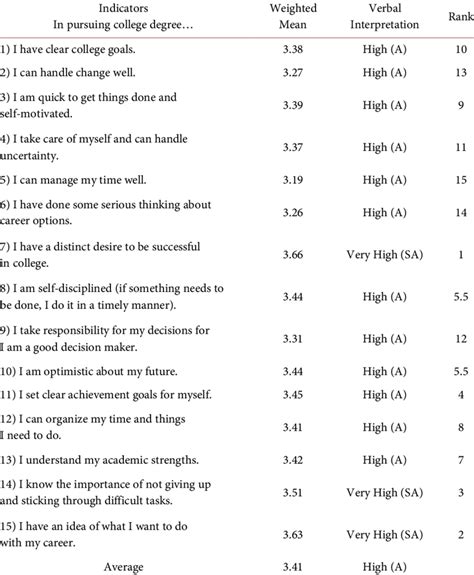Introduction: Embarking on the College Readiness Journey
As you stand at the precipice of your post-secondary education journey, it’s imperative to assess your college readiness to optimize your chances of academic success. This comprehensive quiz will illuminate your strengths and weaknesses, providing invaluable insights into your preparedness for the rigors of college-level coursework. Begin the quiz with an open mind, and let the results guide your preparation efforts.

Section 1: English Language Arts Proficiency
1. Vocabulary Expansion:
– Define the following words: “abrogate,” “ephemeral,” and “paradox.”
– Use each word in an original sentence, demonstrating a comprehensive understanding of their meanings.
2. Reading Comprehension:
– Read the provided passage on the topic of global warming.
– Identify the main argument, supporting evidence, and any counterarguments presented.
– Summarize the passage in your own words, capturing its key points and implications.
3. Writing Ability:
– Choose one of the following prompts:
– Analyze the effectiveness of a persuasive essay on climate change.
– Construct a narrative essay describing a transformative experience in your life.
– Write a well-organized and grammatically sound essay, adhering to the conventions of academic writing.
Section 2: Mathematics Proficiency
4. Algebraic Operations:
– Solve the following equations:
– 3x – 5 = 14
– (x + 2)(x – 3) = 0
– Explain the steps involved in your solutions, showcasing your understanding of algebraic principles.
5. Geometry and Measurement:
– Calculate the area and perimeter of a rectangular garden with dimensions of 10 feet by 15 feet.
– Determine the volume of a cylindrical tank with a radius of 5 meters and a height of 10 meters.
– Illustrate your solutions with clear and detailed diagrams.
6. Statistics and Probability:
– Interpret a bar graph depicting the distribution of student grades in a college algebra class.
– Calculate the mean and standard deviation of a set of test scores.
– Explain the role of statistics in decision-making and data analysis.
Section 3: Science and Technology Proficiency
7. Scientific Method:
– Describe the steps involved in the scientific method.
– Apply the scientific method to investigate a phenomenon of your choice, such as the effect of water temperature on plant growth.
8. Physical Science:
– Explain the laws of thermodynamics and their implications for energy conservation.
– Describe the structure and function of the human circulatory system.
– Cite examples of technological advancements in the field of physical science.
9. Earth Science:
– Identify the layers of the Earth’s atmosphere and their characteristics.
– Analyze the factors that contribute to climate change and propose mitigation strategies.
– Discuss the role of technology in environmental monitoring and conservation.
Results Analysis: Interpreting Your Assessment
Upon completing the assessment, take time to thoroughly analyze your results. Identify areas where you excel and those that require additional attention. Consider the following strategies to enhance your preparedness:
Strengths:
– Leverage your areas of strength by seeking opportunities to deepen your knowledge and skills.
– Consider joining clubs or participating in activities that align with your interests and abilities.
Weaknesses:
– Focus on improving your weaknesses by allocating more time to studying and practicing.
– Seek additional support from teachers, tutors, or mentors who can provide guidance and assistance.
Common Pitfalls: Navigating Potential Challenges
As you prepare for college, be mindful of common pitfalls that can impede your success:
Procrastination:
– Overcome procrastination by creating a structured study schedule and setting realistic goals.
– Break down large tasks into smaller, manageable chunks.
Fear of Failure:
– Embrace a growth mindset and view setbacks as opportunities for learning and improvement.
– Remember that failure is a natural component of the learning process.
Lack of Motivation:
– Find ways to make learning engaging and relevant to your interests.
– Connect with your future aspirations and the potential impact of a college education.
Comparison to Others:
– Avoid comparing yourself to others and focus on your own progress.
– Remember that everyone has unique strengths and weaknesses.
Comparative Analysis: Pros and Cons of Different Assessment Methods
Various assessment methods exist, each with its advantages and drawbacks. Consider the following table:
| Assessment Method | Pros | Cons |
|---|---|---|
| Standardized Tests (e.g., SAT, ACT) | Objective and standardized scores | Limited scope and may not reflect actual academic performance |
| High School Transcripts | Provide a comprehensive record of academic performance | Dependent on grading policies and curriculum rigor |
| Portfolio Assessments | Showcase a student’s best work and growth over time | Subjective and may not provide a consistent measure of proficiency |
| Performance-Based Assessments | Evaluate skills and knowledge through hands-on projects or presentations | Can be time-consuming and resource-intensive |
Conclusion: Empowering Your College Readiness Journey
Completing this assessment is a pivotal step in your college readiness journey. Embrace the insights gained and utilize them to tailor your preparation efforts. Remember that college readiness is an ongoing process, and with dedication and perseverance, you can achieve academic success.
As you embark on your college adventure, keep in mind the following:
- Embrace lifelong learning and stay curious about the world around you.
- Seek out opportunities for intellectual growth and personal development.
- Utilize available resources to support your academic endeavors.
- Surround yourself with positive and supportive people.
By investing in your college readiness, you lay the foundation for a fulfilling and successful academic experience.
